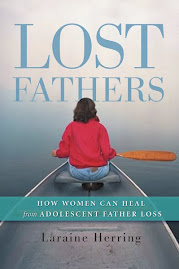Wednesday, March 2, 2011
How Captain Jack Sparrow Helps Us Write A Story
Warning: Extended Metaphor of Today's Blog May Not Work for All Readers (but don't deny yourself a little look at the lovely!)
Come on, ya'll. I know I don't have to tell you anything about that picture.
Hello, there, Captain Jack. Yes, indeed. I know you are clearly one of those Stranger Danger folks they told us about in third grade. I know it's never good to be with a man who accessorizes better than I can. I know you've not had proper dental care, you smoke, and I know that you give the same look to all the girls.
Sigh.
And I know it doesn't matter one bit. Because maybe, just this once, that look will be for me. I'll be the one who can change you, Captain Jack. You spend too much time with the skinny girls anyway. You're wounded. You just need someone to love you who understands you. It's me. I promise. We'll run away together to an island. You'll rescue me from cannibals and we'll find ourselves in a strange encounter with a voodoo priestess and after a few swashbuckling moments of fancy and fun, you'll find yourself at the gallows, or about to walk the plank, or about to spend seven years under the sea in the hands of a creepy-weird-monster-creature. It's OK, Captain Jack. I'll wait for you.
Sigh.
I think that when we write, we have a Captain Jack Phase. Let's call it CJP. In the CJP, we do a lot of things we wouldn't do pre-CJP. We do a lot of things we'll wonder about post-CJP.
Here's the Peer-Reviewed-Iowa-Writing-Workshop-Endorsed Captain Jack Theory of writing:
- We follow the prettiest, most bewitching idea. This is not necessarily a problem, until we can no longer see ourselves along the way. The prettiest, most bewitching idea has captured us, and we find ourselves enslaved by the spectacle, so much so we can't tell if there is substance beneath it, and we don't want to do the work to find out because, well, he's just so darn beautiful.
- We let ourselves get tricked, bewitched, befuddled and bewildered because we simply can't believe someone as FREAKIN' GORGEOUS as Captain Jack is giving us the time of day. Because clearly he is, we forget that he does this to all the girls. When the bluster of the night of sound-tracked love is through, the sword is gone. The rum is gone. The dirty dishes are there, the dirty sheets, the Visa bills. How did that happen to my story? I had THE COOLEST MOST AMAZING GREAT AMERICAN NOVEL ever. Why is my story gone?
- Our ego wins. He likes ME. He really really likes ME. The ego jumps on board with that, oh ye of the mousy brown hair and middle aged bosom, and says, "Oh yeah. Sign me up. Paparazzi? I'm right here." When this happens, we reflect back only the spectacle in front of us. We reflect back our need to be seen, to be good enough, smart enough, and pretty enough. We begin to exist through the eyes of others. Our center rises and falls based on external forces. That empty reflection rusts us.
- The seductive idea is exactly that: The Seductive Idea. Follow it. Only a fool would say no, no matter how many women have gone before you. But keep your center. Don't let the lure of the magnificence of your Seductive Idea, the promise of book reviews by that oh-so-powerful New York Times, the dream that Oprah will revive her book club just for THIS MOST AMAZING book keep you from seeing the actual book.
- The Seductive Idea splashes fire. We can't help but notice. Don't mistake the illusion for the steadily burning center. Too often we'll chase sparks because they're bright and loud and new. The work of writing doesn't live in the sparks. It lives in the coals.
- Pay attention to what is left when the fire burns out. Rather than blame the Seductive Idea for being exactly what it is: A Seductive Idea; instead, ask yourself what it gave you, not what it took. What were you questioning when you fell into its web? What were you searching for? And now, that he took his rum and his sword and his hair and left, what are you still asking? That may be the question of your novel.
- That explosion of seduction struck a match. Its nature is to burn out. Your job is to be thankful for the flame, and to then determine what you can do to sustain it after he's well on his way to another gal. What passions did he light? Explore those.
- The gift of the Captain Jack Phase is the afterglow, not the initial first blush of lust. He leaves you in the dark, panting, vulnerable and real. It's when he leaves, that you can write. Don't chase him. He won't come back. He's not supposed to stay. Wrap yourself in his abandoned nightshirt. Touch the place on your cheek he stroked on his way out your door. But don't chase. Stay still. Stay rooted in the rubble of what he burned. Dig there for your story's truths. Dig there for your glowing embers, and when you've turned them all over, cooled them with nouns and verbs and breath, take the ash and spread it in your garden. And wait. When Captain Jack knocks again, let him in. Look him in the eye. Hand him your pen and ask, "What are you about? Take off the makeup. Take off the braids. Take off the bandana. Who are you?"
The answer is your novel.
Go ahead and watch, ladies. Gents, I won't tell. Life's too short not to honor beauty.
And when you're done watching (and whatever else you feel compelled to do), write directly into that fire. Use the tip of the coal to scratch the words on the paper. Take that cooling fire and make your art. Not Captain Jack's art. Not the New York Times Book Review's art. Not Oprah's art.
Captain Jack came for you. Wouldn't it be a shame if you didn't listen?
Subscribe to:
Post Comments (Atom)












1 comment:
There's a lot of truth there. I tend to think of my ideas as "ooh, shiny things" and then I'm distracted by the next shiny thing as soon as the shine tarnishes from the first one.
Post a Comment